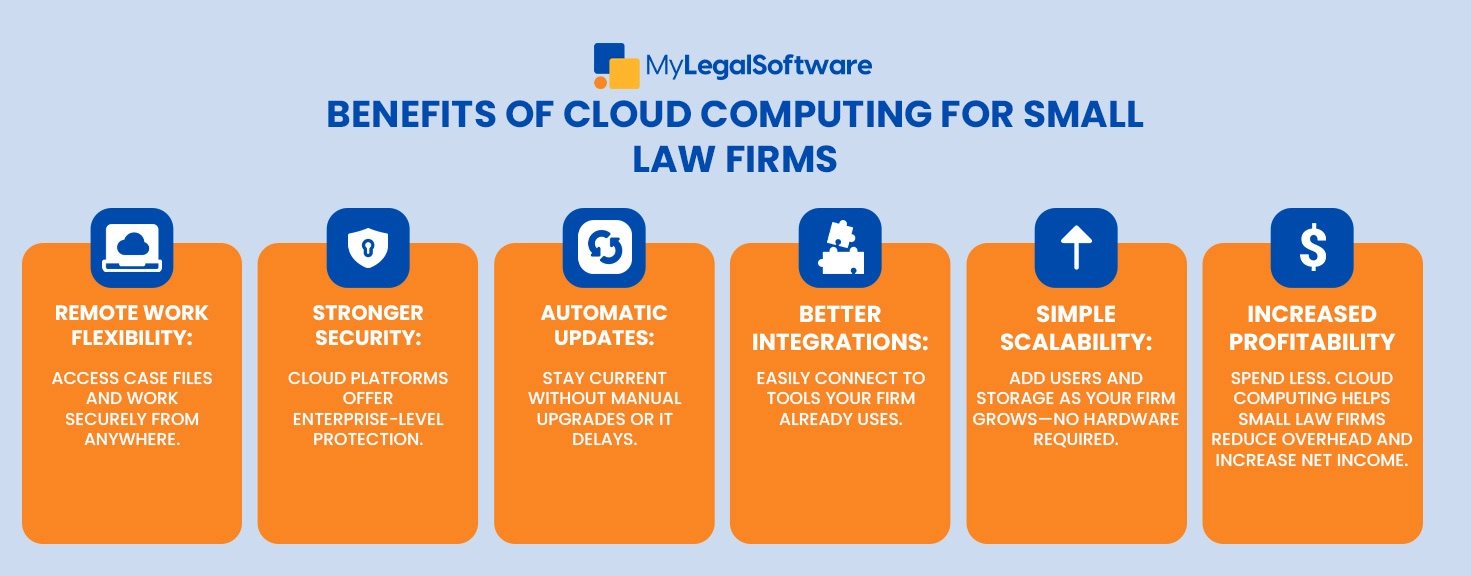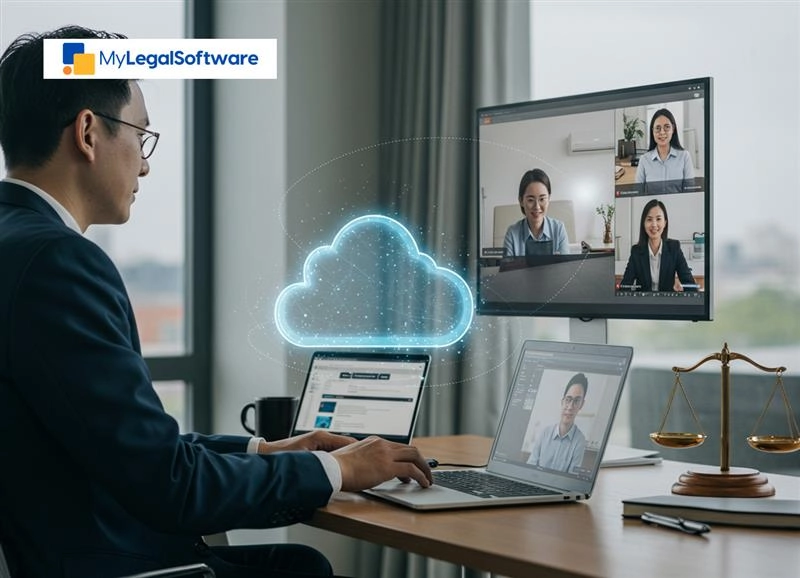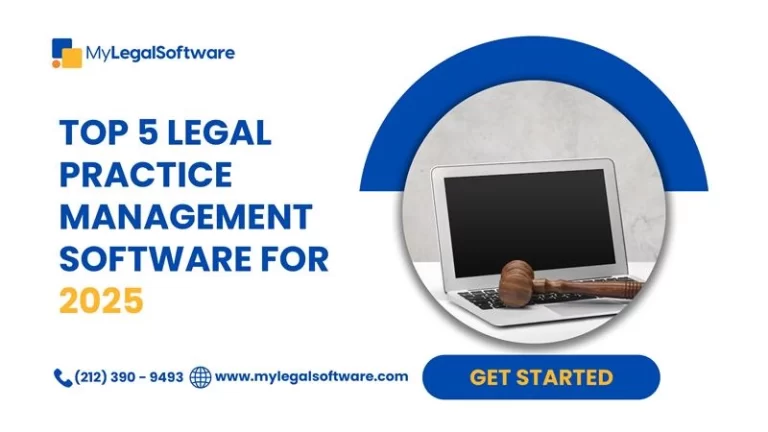Unsurprisingly, more law firms are ditching in-house servers for cloud-based solutions. Cloud computing offers law firms a better way to manage operations, protect client data, and work remotely.
In this blog, we discuss what cloud computing means, how it compares to traditional on-premise systems, the benefits of cloud computing for small law firms, and why 2025 is the year for your firm to switch.
What Is Cloud Computing?
Cloud computing allows you to access software, documents, and data over the internet instead of relying on in-house servers. If you have ever used Gmail, Google Drive, or Dropbox, you have already used cloud technology.
Instead of installing legal software on each computer, cloud-based legal platforms like MyLegalSoftware (MyLS) let you log in securely from any device and location.
What are the Disadvantages of Traditional Storage?
Traditional legal software stored on office servers comes with several drawbacks, including:
- High costs for setup, IT maintenance, and server space
- Physical space needs, including secure, climate-controlled environments
- Limited mobility, often requiring clunky VPNs for remote access
- Poor security and slow updates, which can leave your firm vulnerable
On-premise systems are becoming a liability for law firms trying to stay agile and competitive.
What are the Benefits of Cloud Computing for Small Law Firms?
Cloud computing can improve every area of your law firm’s operations in the following ways:

1. Better Security
Security is one of the main concerns for legal professionals and is one of the cloud’s biggest strengths. Cloud providers like MyLS invest in top-tier security infrastructure that most law firms cannot match. Your client data is encrypted, backed up, and protected against unauthorized access 24/7.
2. Work from Anywhere
Cloud-based platforms allow you to:
- Access case files securely
- Communicate with clients and colleagues
- Update case notes and documents in real-time
This convenience and flexibility is a game-changer for small law firms.
3. Automatic Software Updates
You no longer have to block off hours for software updates or pay for costly upgrades with cloud-based software. Everything is updated automatically behind the scenes. This way, your firm will always be running the latest version without disruptions in company operations.
4. Integrates with Other Tools
Cloud platforms like MyLS integrate with apps you already use, such as Google Workspace, DocuSign, Dropbox, Outlook, and Zoom. These systems work together seamlessly, reducing admin time and increasing productivity.
5. Scales as You Grow
Cloud computing is beneficial for small law firms. You do not need to invest in a second office or bigger workspace. With cloud-based software, you can add a new user without hardware setup or IT challenges. MyLS grows with your firm.
6. Financial Benefits
Switching to cloud computing can also boost net income:
- Avoid expensive fines by reducing the risk of data breaches
- Eliminate downtime caused by software failures or server issues
- Only pay for what you need—scale storage and users up or down as required
Why Some Firms Still Resist Cloud Computing and Why They Shouldn’t?
Despite the numerous benefits, some firms hesitate to adopt the cloud due to:
- Misconceptions about security
- Fear of change or disruption
- Uncertainty about costs
Cloud computing for small law firms is more secure, affordable, and adaptable than ever. The longer firms wait to transition, the more they risk losing to competitors.
MyLegalSoftware as a Cloud Computing Tool for Small Law Firms

MyLegalSoftware (MyLS) is an all-in-one cloud-based solution built for small to large law firms. With MyLS, you get:
- Secure cloud-based case management software
- Built-in billing and accounting tools
- Seamless collaboration features
- Easy document sharing and e-signatures
- Scalable pricing to match your firm’s needs
As a small, mid, or large-sized legal practice, MyLS helps you to manage cases, clients, and operations better.
Is your firm still relying on old-school systems? 2025 is the year to change that. Cloud computing is the present and the future. It is the smartest investment your law firm can make for better security, smoother workflows, and happier clients.
Start your free 14-day trial with MyLS or schedule a demo to see how cloud computing can help your legal practice.
Frequently Asked Questions (FAQ)
What is cloud computing for small law firms?
Is cloud computing safe for legal practices?
What are the advantages of using cloud software?
- Remote access to cases and documents
- Automatic software updates
- Enhanced data security
- Easier integration with other tools
- Scalable pricing and storage options
Must I be a tech pro to use cloud-based software?
Will switching to the cloud affect my firm’s workflow?
What happens if the internet goes down?
What will happen when my firm gets bigger?
Cloud computing allows small law firms to access legal software, case files, and client data over the Internet rather than storing everything on in-house servers.
Many cloud providers offer higher levels of security than most small law firms can manage. With features like encryption, routine backups, and advanced firewalls, cloud platforms like MyLegalSoftware help keep sensitive data safe.
Cloud software like MyLegalSoftware offers the following benefits:
All of these features help law firms work better.
Most cloud-based platforms are designed with ease of use in mind. MyLegalSoftware, for example, provides an intuitive interface and offers onboarding support so your team can get started quickly and easily.
Transitioning to the cloud can be smooth with the right provider. MyLS offers support during setup and data migration to minimize any disruption. Once up and running, your firm will likely experience faster operations.
Most cloud-based tools allow offline access to some files, and once your connection is restored, everything syncs automatically. Having a backup internet source, like a mobile hotspot, is also good practice.
One of the biggest advantages of cloud computing for small law firms is scalability. As your firm grows, you can add users, storage, and features without investing in new infrastructure.
Do you want to know the Top 5 Legal Practice Management Software for 2025? Go here.








